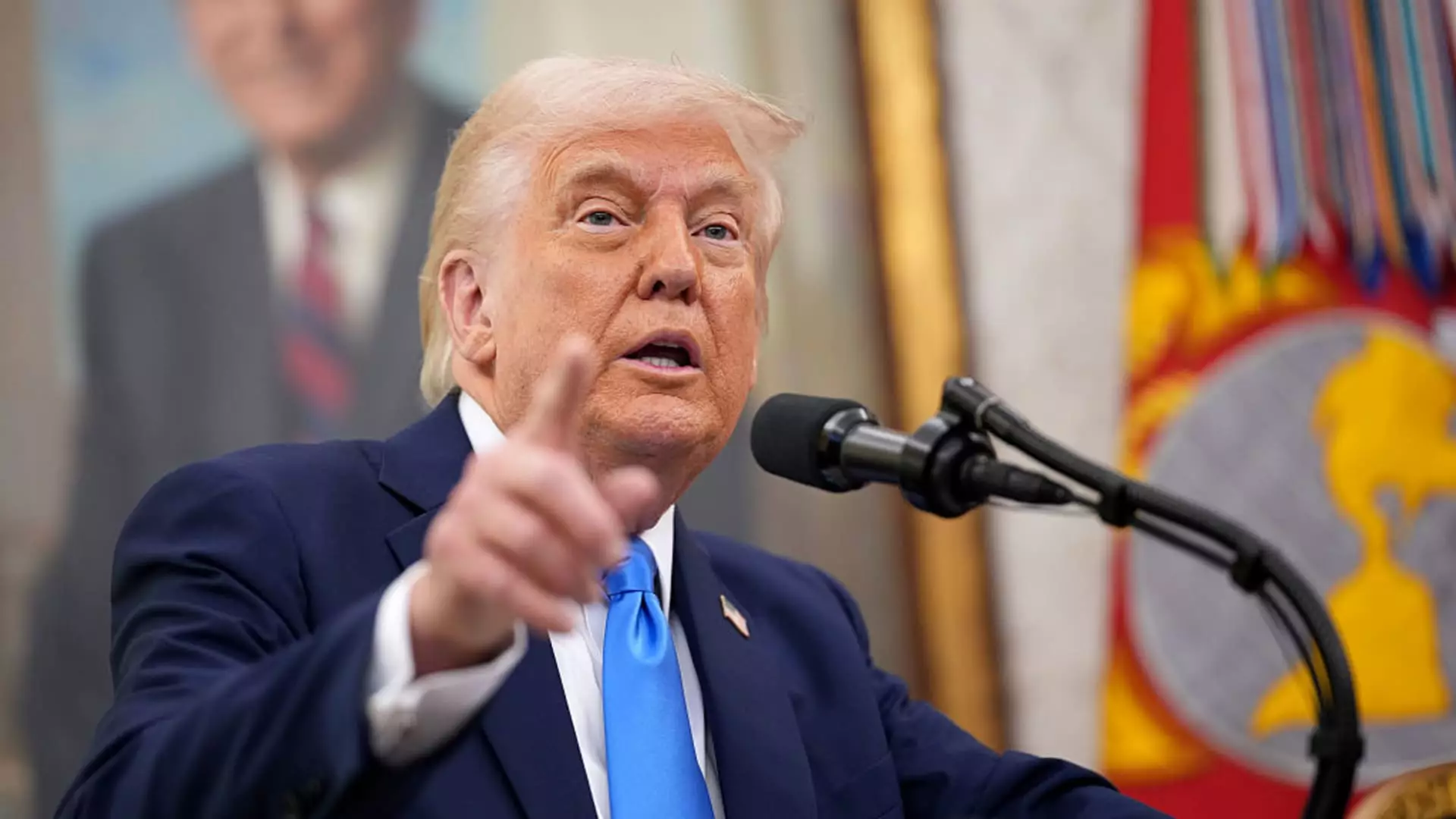As President Donald Trump prepares to unveil what could be the most sweeping set of tariffs in modern American history, a tidal wave of uncertainty washes over trade relations and economic projections. This move, marked by an ominous proclamation of “America’s liberation day,” is positioned as a bold strike against perceived injustices in international trade. However, beneath the bombastic rhetoric lies a host of questions and concerns about the wisdom, efficacy, and ethical implications of such drastic measures.
The term “reciprocal tariffs” sounds relatively innocuous at first glance, but the practical reality is far more complicated. By calculating tariffs in response to those being imposed by other nations, Trump’s administration risks igniting an already tense relationship with key economic partners—many of whom are critical to the United States’ economic ecosystem. Tariffs could lead to a retaliatory spiral that harms both American consumers and industries, unraveling years of hard-won trade agreements and trust.
Unveiling the “Dirty 15” and Beyond
Treasury Secretary Scott Bessent’s identification of the so-called “Dirty 15”—targeting a smaller subset of nations responsible for a major share of U.S. trade deficits—lends credence to the argument that the Trump administration has a method to its madness. However, the lack of transparency regarding the specific countries and the rationale behind their classification only fuels skepticism. The term “Dirty 15” drips with condescension and raises eyebrows: Are these nations genuinely exploiting the U.S., or is this a simplistic view that ignores the complexities of global trade dynamics?
Experts like Kevin Hassett, director of the National Economic Council, suggest narrowing the focus would be beneficial, yet the scattershot approach of including all nations strikes a discordant note in an otherwise calculated strategy. In practical terms, Trump’s unrestrained rhetoric about addressing trade deficits could backfire spectacularly. While wage losses among domestic workers can be devastating, offensive policies targeting entire nations could shift supplier reliance towards countries with lesser standards—ultimately sacrificing the very labor protections and ethical considerations the administration claims to uphold.
The Economic Reality Check
One cannot underestimate the economic implications of these looming tariffs. Historical precedent suggests that protective tariffs often lead to higher consumer prices and strained domestic relationships with allies. Economists, regardless of their political leanings, caution that trade deficits are not inherently detrimental; rather, they mirror consumer demand and the diverse availability and pricing of goods in an increasingly interconnected marketplace. Ignoring these nuances, Trump’s binary view of trade relations risks leading us toward an isolationist economic stance.
Furthermore, as new tariffs are layered atop previous ones—targeting everything from steel to foreign cars—the foundational policies placed under relentless strain could erode the vitality of American innovation and competitiveness. For example, with technology and auto industries relying heavily on imported parts, tariffs can dampen output and inflate prices, which ultimately harms consumers who bear the brunt of these poorly thought-out policies.
The Political Underbelly
What drives this unyielding fixation on trade tariffs? It seems as though the allure of a decisive measure has overshadowed thoughtful economic discourse. Politically motivated actions, riding the wave of populism, can overshadow pragmatism and collective welfare in favor of appealing to a particular voter base. Creating a narrative of winners and losers fosters polarization, an “us vs. them” mentality where entire nations are painted with a broad brush based on economic statistics alone.
In reality, this contentious political strategy risks leading not just to economic fallout, but to a more fractured global landscape where alliances are weakened and adversarial ties are strengthened. The broader implications of trade wars extend beyond economics; they risk undermining diplomatic channels that have taken decades to establish.
As we stand on the precipice of a potentially transformative time in trade policy under Trump’s administration, the hope is that sound judgment will prevail over brashness. It is imperative that policymakers prioritize measured discourse, embracing the complexity of relationships that define America’s international standing, rather than taking the plunge into an all-out trade conflict that could have far-reaching repercussions well beyond economic metrics.

